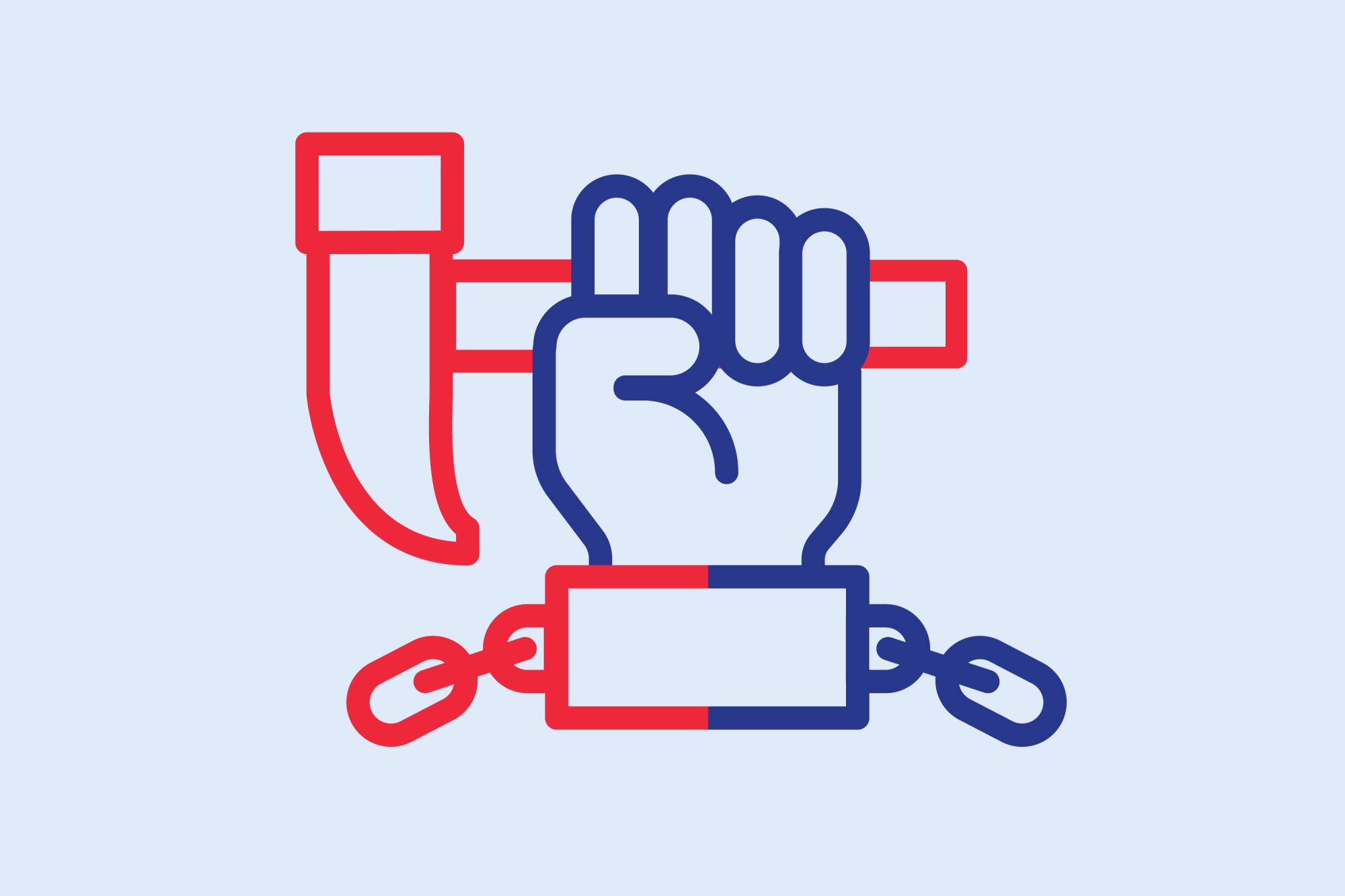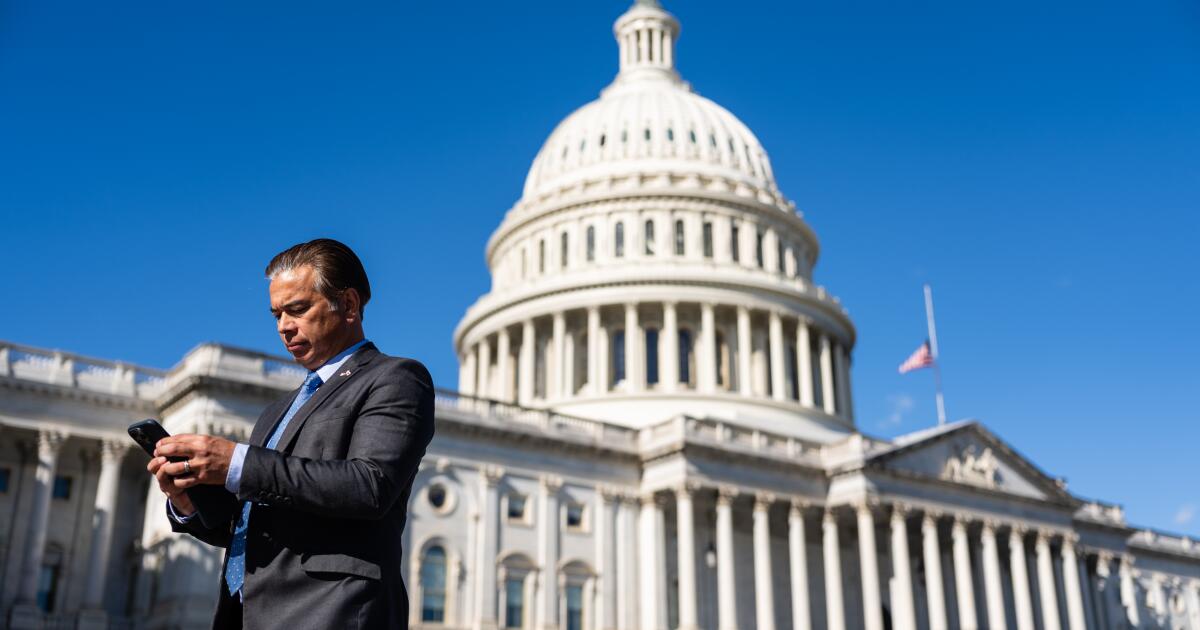Politics
2024 California propositions voter guide: minimum wage, crime, marriage, healthcare, rent and more

In addition to a precarious presidential election and high-stakes U.S House races, California voters in November will also weigh in on a slew of statewide initiatives that could significantly shape policy and affect the lives of millions of residents.
Ten measures will be on the ballot and will ask voters if they support raising the minimum wage, cracking down on crime, banning forced prison labor, capping rent and much more.
Golden State voters are accustomed to legislating by the ballot and are often faced with a list of initiatives as part of the state’s direct democracy process. But this year especially, political parties are hopeful that some of the causes will help draw voters to the polls to check other boxes, too, said Mindy Romero, founder of the Center for Inclusive Democracy, a nonpartisan research organization focused on elections.
“Sometimes there are people who are not interested in the top ticket that may solely come out because of their cause,” said Romero, who is a political sociology professor at USC.
Altogether, campaigns supporting and opposing the ballot measures have collected tens of millions of dollars in contributions.
The number of initiatives put to voters could have been much higher, but a flurry of last-minute negotiations in the state capitol led to measure proponents agreeing to pull their proposals in favor of legislation, including a move to make financial literacy a high school graduation requirement. The remarkable round of deal making comes as state leaders have fought to tackle a massive budget deficit and worry about bogging down voters with a crowded ballot.
Here are the initiatives voters will officially see on their ballot in November:
Proposition 2
This bond measure would authorize the state to borrow $10 billion to modernize K-12 schools and community colleges.
The funding could be used to repair outdated school buildings and to upgrade libraries, heating and cooling systems and broadband internet.
Proposition 3

This measure would remove outdated language in the state Constitution that still defines marriage as between a man and woman and instead replace it with a broad “right to marry.”
While the constitutional clause is unenforceable, and same-sex marriage remains federally protected, proponents of the measure say it’s a necessary precaution in case of potential rulings from a conservative Supreme Court majority former President Trump helped appoint.
Proposition 4

This bond measure would authorize the state to borrow $10 billion to help fund the response to climate-related disasters such as drought, flooding and extreme heat. It would also help to ensure clean drinking water.
If approved by voters, it will be the largest investment in combating climate change in California history.
Proposition 5

This measure would make it easier for local governments to approve bonds and tax measures that fund affordable housing and some public infrastructure.
Proposition 5 would lower the required vote threshold to approve those measures from a two-thirds supermajority to 55%.
Proposition 6

This measure would ban involuntary servitude and end mandatory work requirements for state prisoners.
The proposed constitutional amendment is part of a reparations package for descendants of African Americans enslaved in the U.S.
Proposition 32

This measure would increase California’s hourly minimum wage from $16 to $18 and annually adjust it for inflation.
The proposal comes after the state’s politically powerful unions secured $25 an hour for healthcare workers and $20 an hour for fast-food workers and as cities including West Hollywood have moved ahead of the state minimum to as much as $19.08 an hour.
Proposition 33

This measure would allow cities and counties to enact rent control.
Proposition 33 would repeal a 1995 law called the Costa-Hawkins Rental Housing Act, which generally prohibits local governments from limiting rental rates as issued by landlords.
Proposition 34

This measure would require that healthcare providers spend most of the revenue they get from federal prescription drug discount programs on direct patient care.
It would apply only to a very specific subset of doctors who have spent more than $100 million over a decade on “anything other than direct patient care.”
Proposition 35

This measure would provide permanent funding for Medi-Cal, California’s version of Medicaid, which pays for health services for low-income residents.
Right now, a tax on managed health insurance plans that funds the program is set to expire in 2026.
Proposition 36

This measure, backed by law enforcement agencies, would impose harsher sentences for drug possession and retail theft. It would turn some crimes involving fentanyl and repeated shoplifting that are currently misdemeanors into felonies.
Proposition 36 aims to roll back parts of Proposition 47, which a decade ago recategorized some low-level offenses.

Politics
Trump plans to meet with Venezuela opposition leader Maria Corina Machado next week

NEWYou can now listen to Fox News articles!
President Donald Trump said on Thursday that he plans to meet with Venezuelan opposition leader Maria Corina Machado in Washington next week.
During an appearance on Fox News’ “Hannity,” Trump was asked if he intends to meet with Machado after the U.S. struck Venezuela and captured its president, Nicolás Maduro.
“Well, I understand she’s coming in next week sometime, and I look forward to saying hello to her,” Trump said.
Venezuelan opposition leader Maria Corina Machado waves a national flag during a protest called by the opposition on the eve of the presidential inauguration, in Caracas on January 9, 2025. (JUAN BARRETO/AFP via Getty Images)
This will be Trump’s first meeting with Machado, who the U.S. president stated “doesn’t have the support within or the respect within the country” to lead.
According to reports, Trump’s refusal to support Machado was linked to her accepting the 2025 Nobel Peace Prize, which Trump believed he deserved.
But Trump later told NBC News that while he believed Machado should not have won the award, her acceptance of the prize had “nothing to do with my decision” about the prospect of her leading Venezuela.
Politics
California sues Trump administration over ‘baseless and cruel’ freezing of child-care funds

California is suing the Trump administration over its “baseless and cruel” decision to freeze $10 billion in federal funding for child care and family assistance allocated to California and four other Democratic-led states, Atty. Gen. Rob Bonta announced Thursday.
The lawsuit was filed jointly by the five states targeted by the freeze — California, New York, Minnesota, Illinois and Colorado — over the Trump administration’s allegations of widespread fraud within their welfare systems. California alone is facing a loss of about $5 billion in funding, including $1.4 billion for child-care programs.
The lawsuit alleges that the freeze is based on unfounded claims of fraud and infringes on Congress’ spending power as enshrined in the U.S. Constitution. The White House did not immediately respond to a request for comment.
“This is just the latest example of Trump’s willingness to throw vulnerable children, vulnerable families and seniors under the bus if he thinks it will advance his vendetta against California and Democratic-led states,” Bonta said at a Thursday evening news conference.
The $10-billion funding freeze follows the administration’s decision to freeze $185 million in child-care funds to Minnesota, where federal officials allege that as much as half of the roughly $18 billion paid to 14 state-run programs since 2018 may have been fraudulent. Amid the fallout, Gov. Tim Walz has ordered a third-party audit and announced that he will not seek a third term.
Bonta said that letters sent by the U.S. Department of Health and Human Services announcing the freeze Tuesday provided no evidence to back up claims of widespread fraud and misuse of taxpayer dollars in California. The freeze applies to the Temporary Assistance for Needy Families program, the Social Services Block Grant program and the Child Care and Development Fund.
“This is funding that California parents count on to get the safe and reliable child care they need so that they can go to work and provide for their families,” he said. “It’s funding that helps families on the brink of homelessness keep roofs over their heads.”
Bonta also raised concerns regarding Health and Human Services’ request that California turn over all documents associated with the state’s implementation of the three programs. This requires the state to share personally identifiable information about program participants, a move Bonta called “deeply concerning and also deeply questionable.”
“The administration doesn’t have the authority to override the established, lawful process our states have already gone through to submit plans and receive approval for these funds,” Bonta said. “It doesn’t have the authority to override the U.S. Constitution and trample Congress’ power of the purse.”
The lawsuit was filed in federal court in Manhattan and marked the 53rd suit California had filed against the Trump administration since the president’s inauguration last January. It asks the court to block the funding freeze and the administration’s sweeping demands for documents and data.
Politics
Video: Trump Says ‘Only Time Will Tell’ How Long U.S. Controls Venezuela

new video loaded: Trump Says ‘Only Time Will Tell’ How Long U.S. Controls Venezuela
transcript
transcript
Trump Says ‘Only Time Will Tell’ How Long U.S. Controls Venezuela
President Trump did not say exactly how long the the United states would control Venezuela, but said that it could last years.
-
“How Long do you think you’ll be running Venezuela?” “Only time will tell. Like three months. six months, a year, longer?” “I would say much longer than that.” “Much longer, and, and —” “We have to rebuild. You have to rebuild the country, and we will rebuild it in a very profitable way. We’re going to be using oil, and we’re going to be taking oil. We’re getting oil prices down, and we’re going to be giving money to Venezuela, which they desperately need. I would love to go, yeah. I think at some point, it will be safe.” “What would trigger a decision to send ground troops into Venezuela?” “I wouldn’t want to tell you that because I can’t, I can’t give up information like that to a reporter. As good as you may be, I just can’t talk about that.” “Would you do it if you couldn’t get at the oil? Would you do it —” “If they’re treating us with great respect. As you know, we’re getting along very well with the administration that is there right now.” “Have you spoken to Delcy Rodríguez?” “I don’t want to comment on that, but Marco speaks to her all the time.”
January 8, 2026
-

 Detroit, MI5 days ago
Detroit, MI5 days ago2 hospitalized after shooting on Lodge Freeway in Detroit
-

 Technology3 days ago
Technology3 days agoPower bank feature creep is out of control
-

 Dallas, TX4 days ago
Dallas, TX4 days agoDefensive coordinator candidates who could improve Cowboys’ brutal secondary in 2026
-

 Health5 days ago
Health5 days agoViral New Year reset routine is helping people adopt healthier habits
-

 Nebraska2 days ago
Nebraska2 days agoOregon State LB transfer Dexter Foster commits to Nebraska
-

 Iowa2 days ago
Iowa2 days agoPat McAfee praises Audi Crooks, plays hype song for Iowa State star
-

 Nebraska2 days ago
Nebraska2 days agoNebraska-based pizza chain Godfather’s Pizza is set to open a new location in Queen Creek
-

 Entertainment2 days ago
Entertainment2 days agoSpotify digs in on podcasts with new Hollywood studios



















